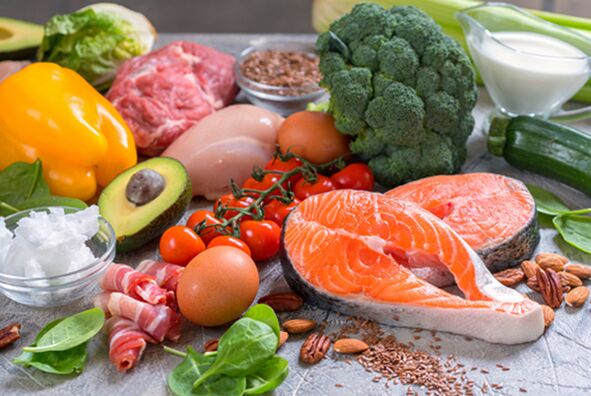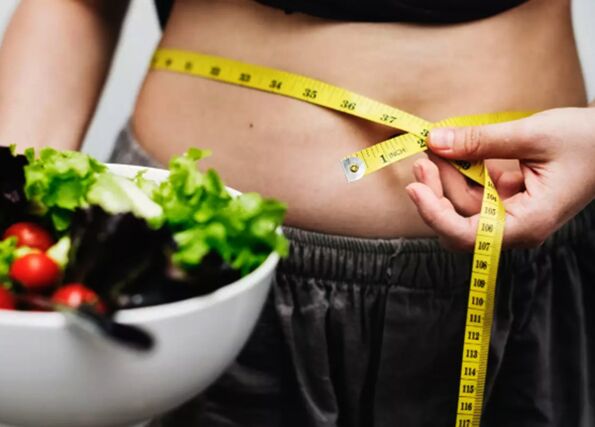
For whom is the amount of protein, fat and carbohydrates listed on the product for? Of course, for those who follow any diet. So people who follow low-carb options, first of all, pay attention to the fact that the carbohydrate content in the product does not exceed a certain amount.
Who needs a low-carb diet and why?
Such a diet is a reduction or complete rejection of high-carbohydrate foods. Initially, the diet was developed for athletes. Now such foods are most often used by 3 categories of people:
- Those who want to lose weight.
- diabetics.
- The athletes themselves.
Carbohydrates in food are sugars. It doesn't matter that some high-carb foods aren't sweet at all. When processed in the body, any carbohydrates become sugars. That is why diabetics, people with high blood sugar, adhere to a carbohydrate-free diet.
Also, scientists have proven that excess sugar in food is stored in the human body in the form of fat. Therefore, those who want to lose weight also use a low-carb diet. Athletes just need to keep themselves in good shape. Another name for low carb is the ketone or protein regime.

When eating a low-carb diet, people reduce their intake or eliminate from their diet:
- bakery products.
- Sugar and any sweets.
- Some vegetables: potatoes, pumpkin.
- Sweet fruits: bananas, apricots and berries: cherries, grapes.
- Save juice.
- Some cereals: rice.
- Some kind of spaghetti.
And this is not a complete list. But does everyone need the same diet? After all, each of them has its pros and cons.
Pro Diet
Nutritionists and general therapists advise low-carb diets not only for people who are losing weight and who are sick. You can also limit carbohydrate intake for normal loading and unloading. But in general, such a diet has many advantages:
- Support for the body. Everyone, not just sick people, should take care of their health, because excess carbohydrates act like slow bombs. Constant overeating of high-carbohydrate foods gradually destroys the body.
- With a low-carb diet, the body's sensitivity to insulin increases, therefore the pancreas produces less insulin. This allows you to protect yourself from an incurable disease - diabetes. Therefore, a big plus of the diet is the prevention of serious diseases.
- For those who are losing weight, the advantage is that you can eat a lot of food without carbohydrates and still lose weight. Some people find it difficult to limit their food intake, so eating carb-free is a great option. Meat, for example, contains no carbohydrates at all.
- You can lose weight in no time.
- Low-carb foods don't have to go to a specialty store or buy anything special. All food is sold in a regular supermarket near the house in any town or village: I get it and buy it.
- Price problem. You don't need a lot of money on a diet. You buy the usual healthy products that you are used to: meat, fish, vegetables, dairy foods. On the other hand, if you let go of some candies, there will even be savings.
- Even low-carb menus are easy to find on the internet. There is a wealth of information with tables, recipes and other useful tips. You don't have to think for yourself what and how it is. And even more so to visit a nutritionist to draw up a diet. Just download and print your daily ration.
- You can follow such a diet for a very long time. Over time, the craving for sweets will disappear, and after a few years, the usual dose of sugar will seem sweet.
- Such a diet is considered the lightest and "softest", unlike others. If everything is done correctly, then there will be no stress for the body and losses will be avoided.

minus
Not without reason students are advised to eat a bar of chocolate before the exam. Sugar is energy and candy is a quick way to get it. Therefore, a low-carb diet is not good for everyone. Some people should be aware of the disadvantages of their diet and avoid low-carb diets.
- Workers with intense mental or physical labor should not be carried away by such a diet. And one, and the second requires the same energy that a person does not receive without carbohydrates.
- Diabetics, although they should limit their intake of carbohydrates, need to be aware that their complete absence can lead to low blood sugar levels - hypoglycemia, which is very dangerous.
- It is better to avoid such diets and those who often suffer from edema. Drinking lots of water on a low-carb diet is recommended, and this will cause more swelling.
- You can not adhere to such a diet for children and adolescents (except for those who are obese). The body during the growth period requires a normal, not low, amount of carbohydrates for its development.
- Pregnant women, as well as nursing mothers, do not go on a diet. You may want to lose weight after giving birth, but the health and development of your child is more important.
- On a low-carb diet, a person eats more protein and fat. It is dangerous for heart patients and those with kidney problems. On diet, kidney stones have been reported.
- Sometimes the regimen is accompanied by headaches and constipation. If these side effects occur, you should stop eating carbohydrate-free foods.
- With a low-carb diet, when there is a restriction on sugary foods, the craving for it becomes very strong. Not everyone is able to resist this desire, as a result, they fail, and all the benefits of the diet go to waste.
- Due to drowsiness when starting a diet, it should be used with caution by drivers and persons in charge of essential items.
Results
Any diet, including a low-carb diet, stresses the body, so you shouldn't suddenly give up sugary foods. The transition to a carbohydrate-free diet should be carried out smoothly, observing your reaction. Only in this case there will be some advantages of the diet and it will be possible to avoid all the disadvantages listed. It's worth trying to see if a low-carb regimen is right for you.














































































